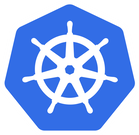Please note that the original design goal of this role was more concerned with the initial installation and bootstrapping environment, which currently does not involve performing continuous maintenance, and therefore are only suitable for testing and development purposes, should not be used in production environments. The author does not guarantee the accuracy, completeness, reliability, and availability of the role content. Under no circumstances will the author be held responsible or liable in any way for any claims, damages, losses, expenses, costs or liabilities whatsoever, including, without limitation, any direct or indirect damages for loss of profits, business interruption or loss of information.
请注意,此角色的最初设计目标更关注初始安装和引导环境,目前不涉及执行连续维护,因此仅适用于测试和开发目的,不应在生产环境中使用。作者不对角色内容之准确性、完整性、可靠性、可用性做保证。在任何情况下,作者均不对任何索赔,损害,损失,费用,成本或负债承担任何责任,包括但不限于因利润损失,业务中断或信息丢失而造成的任何直接或间接损害。
Table of Contents
- Overview
- Requirements
- Role variables
- Dependencies
- Example Playbook
- License
- Author Information
- Donations
Kubernetes is an open-source container-orchestration system for automating application deployment, scaling, and management. It was originally designed by Google, and is now maintained by the Cloud Native Computing Foundation. This Ansible role installs Kubernetes on linux operating system, including establishing a filesystem structure and cluster configuration with some common operational features, very easy to deploy if you use HashiCorp Consul as DNS-based service discovery.
This role will work on the following operating systems:
- CentOS 7
- Rocky 8
The following list of supported the kubernetes releases:
- Core
- kubernetes v1.22
- kubernetes v1.23
- kubernetes v1.24
- kubernetes v1.27
- Network Plugin
- Components
- kubernetes-dashboard v2.6.1
- metrics-server v0.6.1
There are some variables in defaults/main.yml which can (Or needs to) be overridden:
kube_version: Specify the Kubernetes version.kube_node_role: Type of nodes in cluster, master or node.kube_strictarp: A boolean to determine whether or not to enable strict ARP.kube_proxy_ipvs: A boolean to determine whether or not to run kube-proxy in IPVS mode.kube_cloud_provider_external: A boolean to determine whether or not to specify that the cloud-provider is external.kube_skip_phases: Allow skipping a list of phases during kubeadm init/join command execution.kube_control_plane_endpoint: The address or DNS name of the API Server load balancer advertise listening on.kube_control_plane_port: The port of the API Server load balancer advertise listening on.kube_node_extra_labels: Defined node labels.
kube_cni: Specify the Kubernetes Container Network Interface parameters.
kube_cri: Specify the Kubernetes Container Runtime Interface parameters.
kube_kubelet: Specify the Kubelet's configuration parameters.
kube_audit: Specify the auditing configuration parameters.
kube_backupset_arg: Specify the Kubernetes etcd snapshot parameters.
kube_components: Individual Kubernetes components.
kube_registry_mirrors: Specify the image registry mirrors for containerd.
environments: Define the service environment.datacenter: Define the DataCenter.domain: Define the Domain.customer: Define the customer name.tags: Define the service custom label.exporter_is_install: Whether to install prometheus exporter.consul_public_register: Whether register a exporter service with public consul client.consul_public_exporter_token: Public Consul client ACL token.consul_public_http_prot: The consul Hypertext Transfer Protocol.consul_public_clients: List of public consul clients.consul_public_http_port: The consul HTTP API port.
There are some variables in vars/main.yml:
- Ansible versions >= 2.8
- Python >= 2.7.5
See tests/inventory for an example.
[Operator]
dem-p-inf-mas01 ansible_host='10.101.4.43' kube_node_role='master' kube_node_extra_labels='["nodeType=master", "application=Platform"]'
dem-p-inf-mas02 ansible_host='10.101.4.44' kube_node_role='master' kube_node_extra_labels='["nodeType=master", "application=Platform"]'
dem-p-inf-mas03 ansible_host='10.101.4.45' kube_node_role='master' kube_node_extra_labels='["nodeType=master", "application=Platform"]'
dem-p-inf-nod01 ansible_host='10.101.4.40' kube_node_extra_labels='["kubernetes.azure.com/cluster=true", "longhorn/node=true", "application=Platform", "nodeType=slave"]'
dem-p-inf-nod02 ansible_host='10.101.4.41' kube_node_extra_labels='["kubernetes.azure.com/cluster=true", "longhorn/node=true", "application=Platform", "nodeType=slave"]'
dem-p-inf-nod03 ansible_host='10.101.4.42' kube_node_extra_labels='["kubernetes.azure.com/cluster=true", "longhorn/node=true", "application=Platform", "nodeType=slave"]'
[Operator:vars]
kube_version='1.24.17'
kube_control_plane_endpoint='demo-prd-infra-k8s00-apiserver.service.dc01.local'
You can also use the group_vars or the host_vars files for setting the variables needed for this role. File you should change: group_vars/all or host_vars/group_name.
kube_version: '1.24.17'
kube_node_role: 'node'
kube_strictarp: true
kube_proxy_ipvs: true
kube_cloud_provider_external: false
kube_control_plane_endpoint: 'demo-prd-infra-k8s00-apiserver.service.dc01.local'
kube_control_plane_port: '6443'
kube_cni:
enable: true
provider: 'flannel'
pod_cidr: '10.244.0.0/16'
srv_cidr: '10.96.0.0/12'
kube_cri:
plugin: 'containerd'
path: '/data'
metrics: '1338'
kube_kubelet:
clustername: 'kubernetes'
clusterdomain: 'cluster.local'
kubeapiburst: 20
kubeapiqps: 15
logmaxfiles: '10'
logmaxsize: '20Mi'
maxpods: '110'
serializeimagepulls: false
unsafesysctls:
- 'net.core.somaxconn'
- 'net.ipv4.ip_local_port_range'
kube_audit:
logmaxage: '20'
logmaxbackup: '10'
logmaxsize: '100'
logtruncatemaxbatchsize: '32768'
logtruncatemaxeventsize: '32768'
kube_backupset_arg:
keep: '5'
cloud_rsync: true
cloud_drive: 'azureblob'
cloud_bwlimit: '10M'
cloud_event: 'sync'
cloud_config:
account: 'blobuser'
key: 'base64encodedkey=='
endpoint: 'blob.core.chinacloudapi.cn'
kube_components:
- 'dashboard'
- 'metrics-server'
kube_registry_mirrors:
quay:
- 'https://quay.mirrors.ustc.edu.cn'
dockerio:
- 'https://mirror.baidubce.com'
- 'https://hub-mirror.c.163.com'
kube_port_tcp_arg:
etcd: '2379-2380'
api: '6443'
kube: '10250-10256'
node: '30000-32767'
kube_cni_tcp_arg:
calico_bgp: '179'
calico_typha: '5473'
kube_cni_udp_arg:
flannel_vxlan: '8472'
flannel_debug: '8285'
kube_k9s_version: '0.25.21'
environments: 'prd'
datacenter: 'dc01'
domain: 'local'
customer: 'demo'
tags:
subscription: 'default'
owner: 'nobody'
department: 'Infrastructure'
organization: 'The Company'
region: 'China'
exporter_is_install: true
consul_public_register: true
consul_public_exporter_token: '00000000-0000-0000-0000-000000000000'
consul_public_http_prot: 'https'
consul_public_http_port: '8500'
consul_public_clients:
- '127.0.0.1'Please send your suggestions to make this role better.
Please donate to the following monero address.
46CHVMbb6wQV2PJYEbahb353SYGqXhcdFQVEWdCnHb6JaR5125h3kNQ6bcqLye5G7UF7qz6xL9qHLDSAY3baagfmLZABz75



